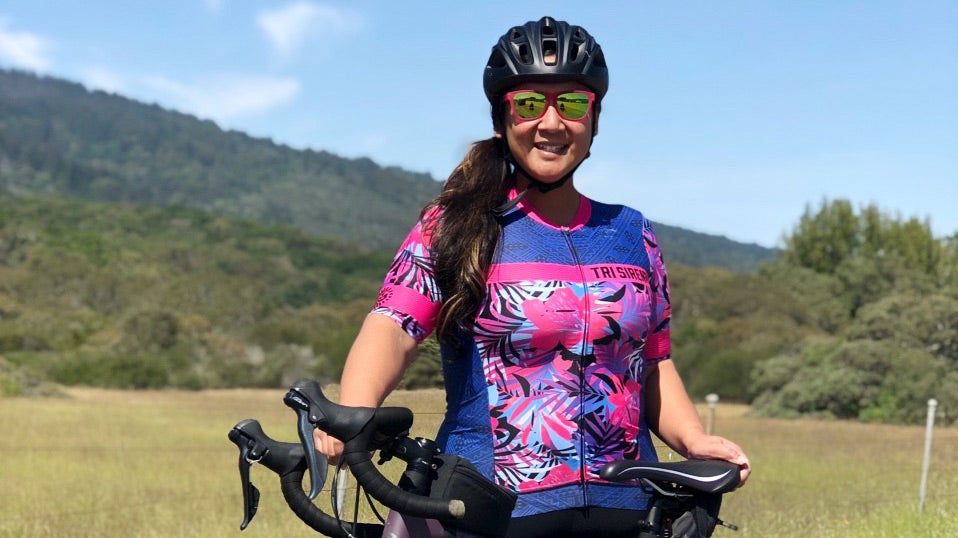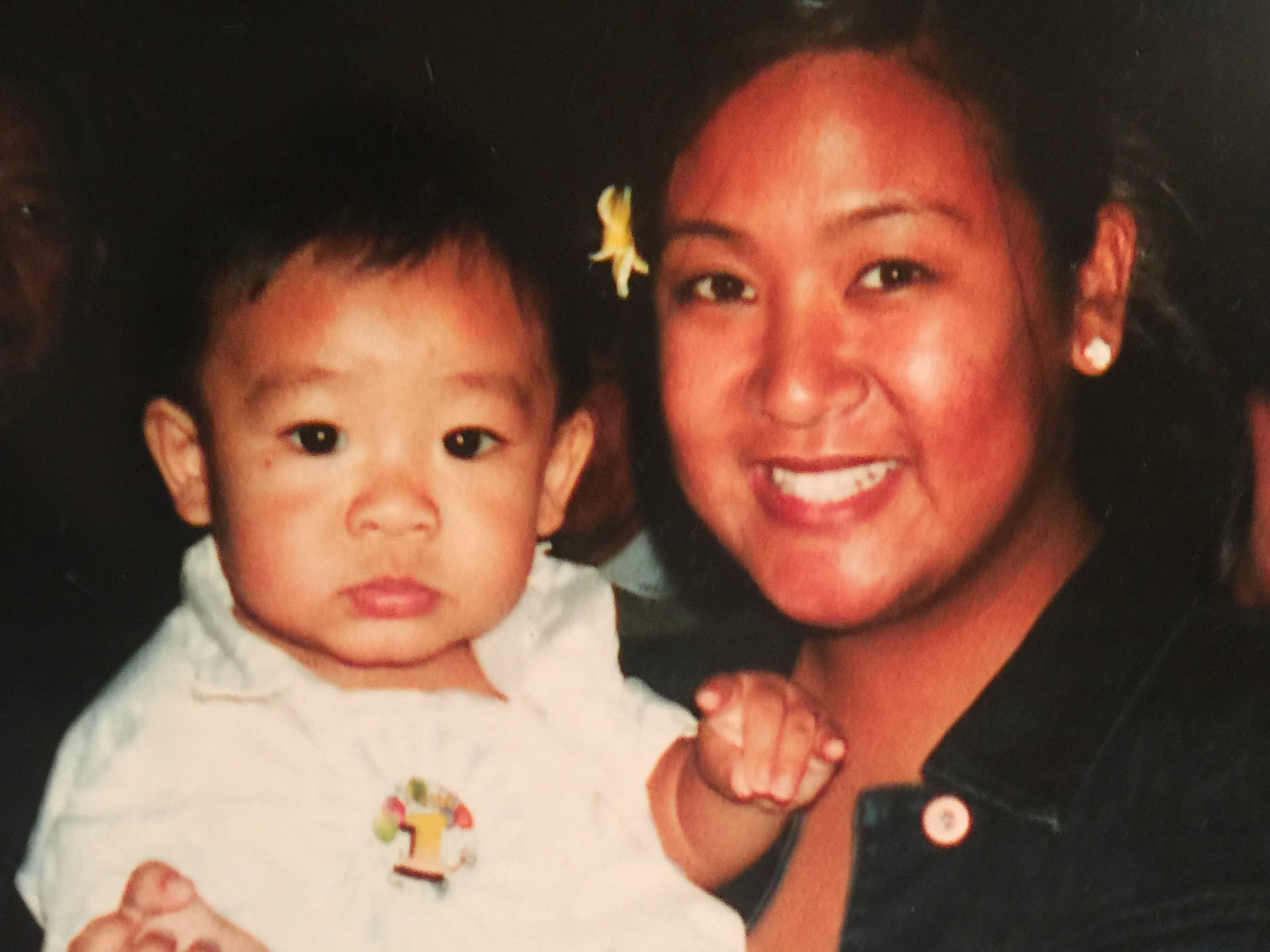#trispo: Using Sport to Cope

(Photo: provided by Angie Banez )
When Angie Banez began to experience strange medical symptoms in the year 2000, her focus was solely on her health. The first challenge was navigating the complex web of medical specialists before finally getting a diagnosis: a rare autoimmune disease called igA nephropathy. Then the attention turned to dealing with the eventual fallout of that disease; when her kidneys began to fail, she began dialysis. As things worsened, a search began for a kidney donor. Banez’s life was already upended at the age of 23, but the news that her condition would complicate her dream of becoming pregnant one day was too much to bear.
The bright spot during all of this was Andrew Kalani Bosque Banez, born November 11, 2000, to Angie’s brother, Alex, and sister-in-law Sheilah.
“Kalani allowed me to experience motherhood in the midst of my kidney failure,” said Banez. “In the moments of sadness that I believed I was not ever going to bear a child, he gave me a reason to believe that being a ‘mom’ was still possible. I have no doubt that I am alive because my will to live was so strong because I wanted to see him grow up.”
The strength derived from her nephew carried her through five years of dialysis, a successful donor surgery, and a grueling recovery. When Angie was well again, she set out to fill Kalani’s life with the same unconditional love and support she had received from him: “I helped raise Kalani, and he called me ‘Auntie Mom.’ After his family moved to Hawaii when he was 5, he was sent to live with me in California during his summer and sometimes winter breaks so that he could spend time with all of his family in California.”

In 2012, with the official all-clear from her doctor, Angie decided she wanted to take full advantage of her now-healthy body. She signed up for a half marathon, then a triathlon in Hawaii, where she could race while visiting Kalani. Her nephew became her biggest cheerleader, joining his “Auntie Mom” on training runs or serving as a spotter on the beach during open-water swim practices. Sometimes, he’d even jump in and swim alongside. At the end of Angie’s first triathlon, Lavaman 2016, Kalani was at the finish line:
“He gave me the biggest bear hug and said, ‘Auntie, I’m so proud of you!’” For Angie, the best part of race day was being able to share it with her nephew.
A year later, 16-year-old Kalani took his life. Even now, it’s hard for Angie to verbalize the word “suicide”—it runs counter to the goofy, kind boy with the big heart and love for life. “Not one of us had ever seen him angry or sad, so of course the way he passed was incomprehensible,” she says. The grief was all-consuming at times, but she felt she had to be strong for her family, so she waited until she was alone to cry.
The healing process for Angie began with a run, where she swore she could feel Kalani’s presence. Wanting to recapture that feeling, she kept going. When Angie channeled her energy into a swim, bike, or run, she found the space she needed to grieve and heal. “I’d take those times to talk to him, to allow myself to feel him by me. When training was tough, I’d ask him to help me through it.”
Sometimes, that came in the form of a supportive cheer from a stranger on the course; other times, a comforting word from a teammate or training buddy. Other times, it came in more distinct forms:
“Climbing hills is particularly challenging for me. During Lavaman 2018, I was growing tired climbing one of the hills along Queen Ka’ahumanu Highway and Hawaii’s humidity did not help. I yelled out loud, ‘Kalani! Send me some wind!’ Now, I don’t know if he had anything to do with it was pretty much smooth sailing after that. In fact, I set a PR for my bike time in that race!”
Today, she shares her experience to raise awareness of suicide prevention and help others find healthy outlets for their grief after a difficult loss. It’s difficult and uncomfortable, but—as always—Kalani gives her the strength to power through.
“Man, I miss that kid,” she said. It’s never easy, but I’m grateful for triathlon. It’s helped me through some of my hardest times.”
The National Suicide Prevention Lifeline is a United States-based suicide prevention network of over 160 crisis centers that provides a 24/7, toll-free and confidential hotline available to anyone in suicidal crisis or emotional distress. For help, call 1-800-273-8255 (TTY: 1-800-799-4889).